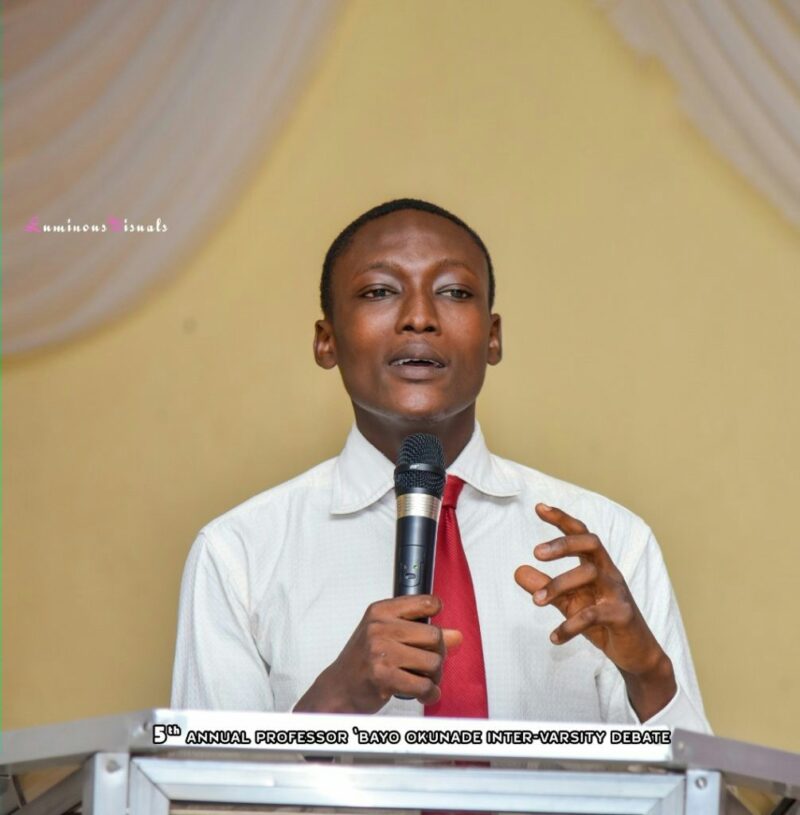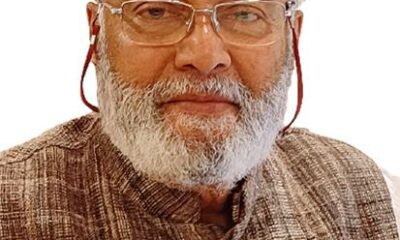Educational Issues
Our Rent is Wasting, OAU Management Intervene Now -By Olokede Oluwabukola Olamide

It is no longer news that this present time is peculiar, as it is evident to all, though with varying experiences. From the metropolis to the periphery of the city, to the countryside, one thing that is crystal clear is that these are not entirely normal times. The effect of this pandemic, which, at first, came in trickles, has suddenly become torrential. Education and its institutions across the world are not spared from the damaging effects of this pandemic. In Nigeria, the dents this pandemic has made on the educational institutions and systems are made worse by the deplorable state the country had been before the outbreak of this novel virus. A dearth of infrastructure, incessant strikes of public unions, students’ unrest, corruption in the system, incompetence of lecturers, perpetual reports of Sex for Grade scandals, inadequate funding of research, unseriousness of students (and so forth), are some of the issues that have exacerbated the effect of this pandemic on the Ivory Towers of our country. This piece will focus on the effects of the pandemic on student accommodation at Obafemi Awolowo University, Ile-Ife, Nigeria.
The order for the closure of tertiary institutions in Nigeria by the federal government was announced on March 19, 2020, as a preventive measure to contain the spread of COVID-19. At OAU, Ile-Ife, the closure happened exactly four weeks after freshmen resumed, and two weeks after stalites returned back to the university campus. Unfortunately, the directive for the closure of the school came at the time when the majority of OAU students had just acquired new tenancy at their respective hostels.
As far as student accommodation is concerned in all government-owned tertiary institutions in Nigeria, students could be categorized into two groups: those who are staying on the university campus, occupying the university halls of residence, and those staying off-campus, occupying privately-owned residencies. Considering the time we are in, this time of unforeseen calamity, only those who could secure accommodation at the university halls of residence before the break out of the virus could be at peace. Though no official data from the university on the total capacity of all the halls of residence in OAU is known, the rough estimate arrived at by the writer of this article shows that a substantial percentage of students are living in privately-owned hostels, outside the campus.
The concern of this writer is on the wastage of rent of those occupying privately-owned hostels. Had it been many were aware that this time would be like this, they would not have paid their rent fees or secured new accommodation in preparation for the new session. Those living in university halls of residence are in an advantageous position since the period of their tenancy runs along with the school academic calendar. However, this is not so for those in privately-owned hostels. A month is gone already without these hostels being used and occupied for the purpose for which they were acquired since almost all the students have left Ile-Ife and returned back to their respective homes. A question might be asked: “But what if we are on vacation?” Yes, there is no need for raising eyebrows if it is a vacation. Vacation cannot take more than four months out of the twelve months of a tenancy. But now a month has passed without being in school, which then means that the period of tenancy would have expired before the session runs out.
We know that the blame for the inadequate provision of halls of residence that could accommodate all students on campus cannot be heaped on the university management, as the dearth of infrastructure is one of the characteristics of our national life in Nigeria. However, it is believed that the management, through its cordial relationship with communities that provide accommodation for students, can take steps that could ameliorate the condition. It needs to be further iterated that many students living off-campus are doing so not because it is affordable or because they want luxury, rather it is because there is no other alternative than to do so. I hereby offer the following as what I think could be done to provide succour for students in this category in this trying time.
Suggestions:
• The university management should create a committee and appoint eminent, humane persons with testimonies of concerns and support for students’ welfare as members.
• This committee should be saddled with the responsibility of interfacing between the university management and the providers of private hostels as well as all stakeholders in the provision of private hostel facilities.
• The appeal of this committee to the providers of private hostels should be to exclude the period of school closure due to COVID-19 from the agreed period of the tenancy.
• Owners of the Maintenance hostels should be mandated by the university to exclude the period of school closure from the period of the tenancy.
• This committee should reach out to the chairperson of Ife Central Local Government and local community leaders, with an appeal to them to help reach out to owners of private hostels in their domain, to exclude the period of school closure from the normal period of the tenancy.
• The vice-chancellor, Prof. Eyitope Ogunbodede, should reach out to the Ooni of Ife, Oba Enitan Ogunwusi, Ojaja II, and the Oba of Modakeke, to help appeal to local community leaders in their domain to persuade landlords to exclude the period of school closure from the specified period of the tenancy.
People of Ile-Ife, Modakeke, and the communities surrounding Obafemi Awolowo University, Ile-Ife, should recall that the citing of the university and the presence of students in Ile-Ife has brought them fortunes. They should, therefore, reciprocate by excluding the period of school closure from the period of the normal tenancy.
Finally, it needs to be made clear that the purpose for which these rooms were rented was not for profit-making and monetary gain for schooling is very much in the future. Post Covid-19 will be very challenging, hence the need to appeal for the humanity of all us, to make sacrifices that will make recuperation from the negative consequences of this pandemic easier for all of us. The university management, under the leadership of Prof. Eyitope Ogunbodede, has ensured that there is a cordial relationship between the gown and the town. Recently, palliatives were provided by the university to people of Ile-Ife in a bid to cushion the bad experience of the pandemic on the poor and vulnerable ones. They should, therefore, reciprocate this kind gesture by persuading their people who are landlords to OAU students to exclude the period of school closure due to COVID-19 from the normal period of the tenancy. Moreover, they should see us as their children and as people who are striving to equip themselves in a bid to contribute to national advancement, development, and greatness. We are tomorrow.
These are hard times and hard times demand uncommon and unflagging demonstrations of our humanity.
OLOKEDE Oluwabukola Olamide is a 300L student of Political Science at Obafemi Awolowo University, Ile-Ife. You can reach him on email: olokedeolamide93@gmail.com and Twitter handle: @BukolaOlokede










